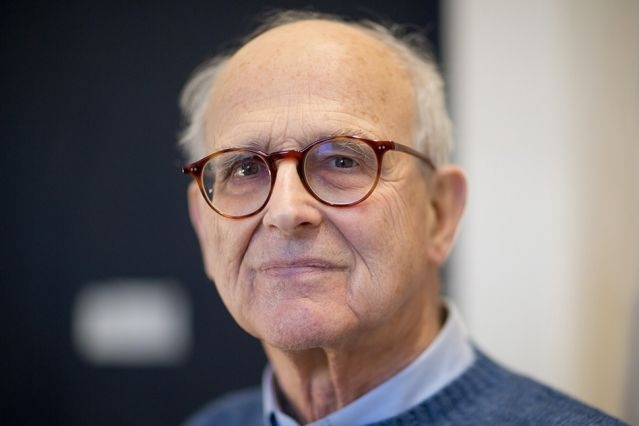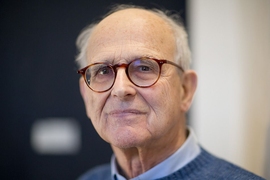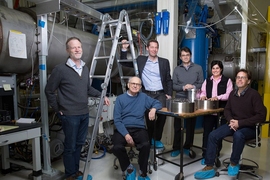The 2017 Princess of Asturias Award for Technical and Scientific Research was awarded on June 14 to MIT Professor Emeritus Rainer Weiss and to Caltech physicists Kip S. Thorne and Barry C. Barish and the LIGO Scientific Collaboration.
Weiss was one of the inventors of the laser interferometer gravitational wave detector in the 1970s and co-founded with Thorne and the late Ronald Drever the National Science Foundation Laser Interferometer Gravitational-wave Observatory (LIGO) project in the 1980s to detect gravitational waves. Astronomers had strong indirect evidence for gravitational waves from the measurements of a binary pulsar system between 1970 to 1990. But on Sept. 14, 2015, LIGO made the first direct detection of gravitational waves from the collision of two black holes.
The measurement came from Advanced LIGO, an upgraded version of LIGO’s two large interferometers at Hanford, Washington, and Livingston, Louisiana. Two other detections have been confirmed since then, with the most recent occurring on Jan. 4 of this year. The detections have confirmed Einstein's field equations in the limit of strong gravity and have opened a new field: gravitational wave astronomy.
In addition to receiving the 2017 Princess of Asturias Award for Technical and Scientific Research, Weiss’ contributions to the field for more than 40 years have resulted in numerous awards, including the 2016 Kavli Prize in Astrophysics, a Special Breakthrough Prize in Fundamental Physics, the 2016 Gruber Prize in Cosmology, and the Shaw Prize in Astronomy.
The Princess of Asturias Foundation presents the Asturias Awards for research and discoveries that "contribute to extolling and promoting those scientific, cultural, and humanistic values that form part of the universal heritage of humanity." Weiss and his team were chosen from a field of 39 candidates from 17 different countries. The awards will be presented this autumn in Oviedo, Spain, at a ceremony presided over by Queen Letizia Ortiz Rocasolano and King Felipe VI, the monarchs of Spain. Each awardee will receive a cash prize of 50,000 euros, a diploma, and an insignia. The winners will also receive a sculpture of Joan Miró, one of Spain’s most celebrated artists.








